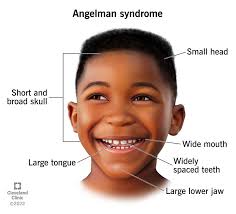An Insight into Angelman Syndrome: Challenges and Hope

Introduction
Angelman Syndrome is a rare genetic disorder affecting about 1 in 15,000 births, characterised by developmental delays, speech impairments, and neurological issues. Understanding this syndrome is crucial not only for providing appropriate care but also for improving the quality of life for those affected and their families. Recent awareness campaigns and scientific research have shifted focus towards addressing the challenges faced by individuals with Angelman Syndrome, offering hope for improved therapeutic strategies in the future.
What is Angelman Syndrome?
Angelman Syndrome (AS) is primarily caused by a deletion or mutation of the UBE3A gene, which plays a significant role in brain development. Individuals with AS often exhibit symptoms such as severe intellectual disability, lack of speech, and movement or balance disorders. Besides these, they display unique behavioural patterns, like a cheerful demeanor, frequent laughter, and hyperactivity. Diagnosing AS involves genetic testing, alongside clinical examinations and assessments of development.
Recent Developments and Research
As of 2023, advancements in research have shown promising potential in treating Angelman Syndrome. Clinical trials focusing on gene therapy and other innovative techniques have gained momentum. For instance, a recent study published in the journal ‘Nature’ discusses efforts to reactivate the paternal copy of the UBE3A gene, which could mitigate symptoms significantly. Further, organisations such as the Angelman Syndrome Foundation are actively supporting research initiatives and fostering collaboration among scientists to bring treatments closer to those in need.
Challenges for Families
Parents and caregivers of children with Angelman Syndrome face numerous challenges, ranging from navigating healthcare systems to accessing specialised support. The unpredictability of symptoms can add stress to daily living, making reliable information and community support essential. It’s important for families to connect with support groups where shared experiences and resources can help manage both emotional and practical challenges.
Conclusion
Angelman Syndrome, while complex and challenging, is a focus of ongoing research that offers hope for better management and treatment. As awareness grows and scientific discoveries unfold, the future may hold promising advancements for individuals living with AS and their families. For readers, understanding Angelman Syndrome brings to light the importance of early diagnosis, community support, and the need for continued research to enhance the lives of those affected.









